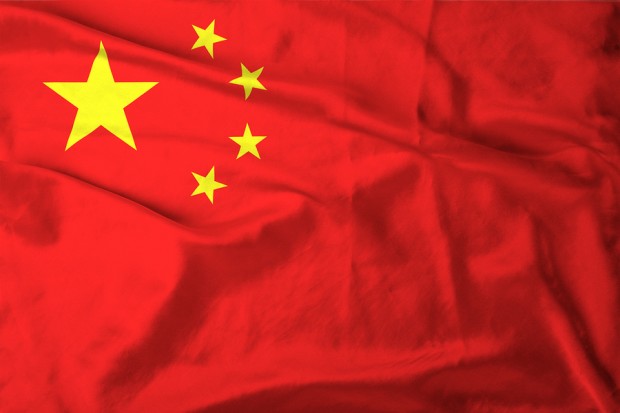Pressure is building on Anbang Insurance Group Co. as Chinese banks distance themselves from the owner of New York’s Waldorf Astoria hotel amid a wide-ranging government probe that landed Chairman Wu Xiaohui in police custody.
Chinese authorities have asked lenders to suspend some business dealings with the insurer, according to a person with knowledge of the matter, who didn’t provide further details. At least six large Chinese banks have stopped selling Anbang policies at their branch networks, with some taking action before the government notice, people with knowledge of their operations said.
The directive strikes at the heart of Anbang’s business model and raises questions about how much China will tighten the screws on an insurer with $294 billion of assets and more than 30,000 employees. Anbang’s life unit distributes almost 90 percent of its products through banks, collecting premiums that Wu has used to snap up global assets from U.S. hotels to a Belgian lender and a South Korean insurer.
“It’s like having your legs broken,” said Grace Zhou, a Hong Kong-based analyst at ICBC International, referring to the reported block on Anbang’s bank channels. “It’s their main source of revenue.”
The development marks the latest twist for a company that rose from obscurity to global prominence in just over a decade, helped by government-linked backers and sales of investment-like products that promised big returns to mom-and-pop savers.
An Anbang representative said the company’s cooperation with banks, including product distribution, remains normal. He added that direct sales, mostly via mobile apps, contribute an increasing share of Anbang’s premium income. The company’s life-insurance unit had 207.8 billion yuan ($30.6 billion) of cash reserves as of April 27, while its property-insurance unit held 322.6 billion yuan, Anbang said in a statement released April 28, denying media reports that it faced a 20 billion yuan shortfall.
Anbang has become the highest-profile target of a Chinese government crackdown on risky practices in the insurance industry as President Xi Jinping tries to put the nation’s financial system on a more stable footing. The detention of Wu — the latest in a long list of Chinese tycoons and senior politicians rounded up for questioning over corruption or financial crimes — is likely to reinforce Xi’s strength before a key Communist Party leadership reshuffle this year.
Wu Detention
Wu faces questions in a probe that includes looking into the sources of funding for Anbang’s acquisitions overseas, possible market manipulation by insurers, and “economic crimes,” people familiar with the matter said. The questioning doesn’t mean Wu is accused of any crime or will face charges, they said.
Signs of increased government pressure have been building for months. China’s central bank was said to look into suspected breaches of anti-money laundering rules at Anbang late last year, while government-linked business associations were told by authorities at the end of 2016 that they shouldn’t enter into new partnerships with the company. Authorities temporarily banned Anbang’s life insurance unit from applying for new products in May.
Regulators have been clamping down on insurers who rely on sales of short-term policies to fund purchases of illiquid assets like real estate. One of Anbang’s most popular products in 2015 — called Anbang Longevity Sure Win No. 1 — offered returns of more than triple the benchmark bank deposit rate and gave holders the option of cashing in after two years.
Damage Control
Sales of such products have tumbled recently. Premium income at Anbang’s life unit sank 88 percent in April from a year earlier, according to data posted on the China Insurance Regulatory Commission’s website on Thursday.
The overseas deals that vaulted Wu and his company onto the global stage have also slowed. High-profile bids for American hotels, insurance assets and a Manhattan office tower owned by the family of U.S. presidential adviser Jared Kushner all fell through during the past 18 months amid increased scrutiny at home and abroad.
Anbang held a meeting of senior executives at the group and its affiliates on Wednesday to discuss how to stabilize staff morale amid the crisis, a person with knowledge of the matter said.
To contain the damage, the insurer needs to maintain the level of returns it promised to clients to prevent them from surrendering their policies for cash payments, according to ICBC’s Zhou. She said that will be difficult, as will selling new policies without help from banks: “It’s very hard for any other channel to pick up the slack in a short period of time.”





















 How Americans Are Using AI at Work: Gallup Poll
How Americans Are Using AI at Work: Gallup Poll  Insurance Groundhogs Warming Up to Market Changes
Insurance Groundhogs Warming Up to Market Changes  Earnings Wrap: With AI-First Mindset, ‘Sky Is the Limit’ at The Hartford
Earnings Wrap: With AI-First Mindset, ‘Sky Is the Limit’ at The Hartford  Nearly 26.2M Workers Are Expected to Miss Work on Super Bowl Monday
Nearly 26.2M Workers Are Expected to Miss Work on Super Bowl Monday 

